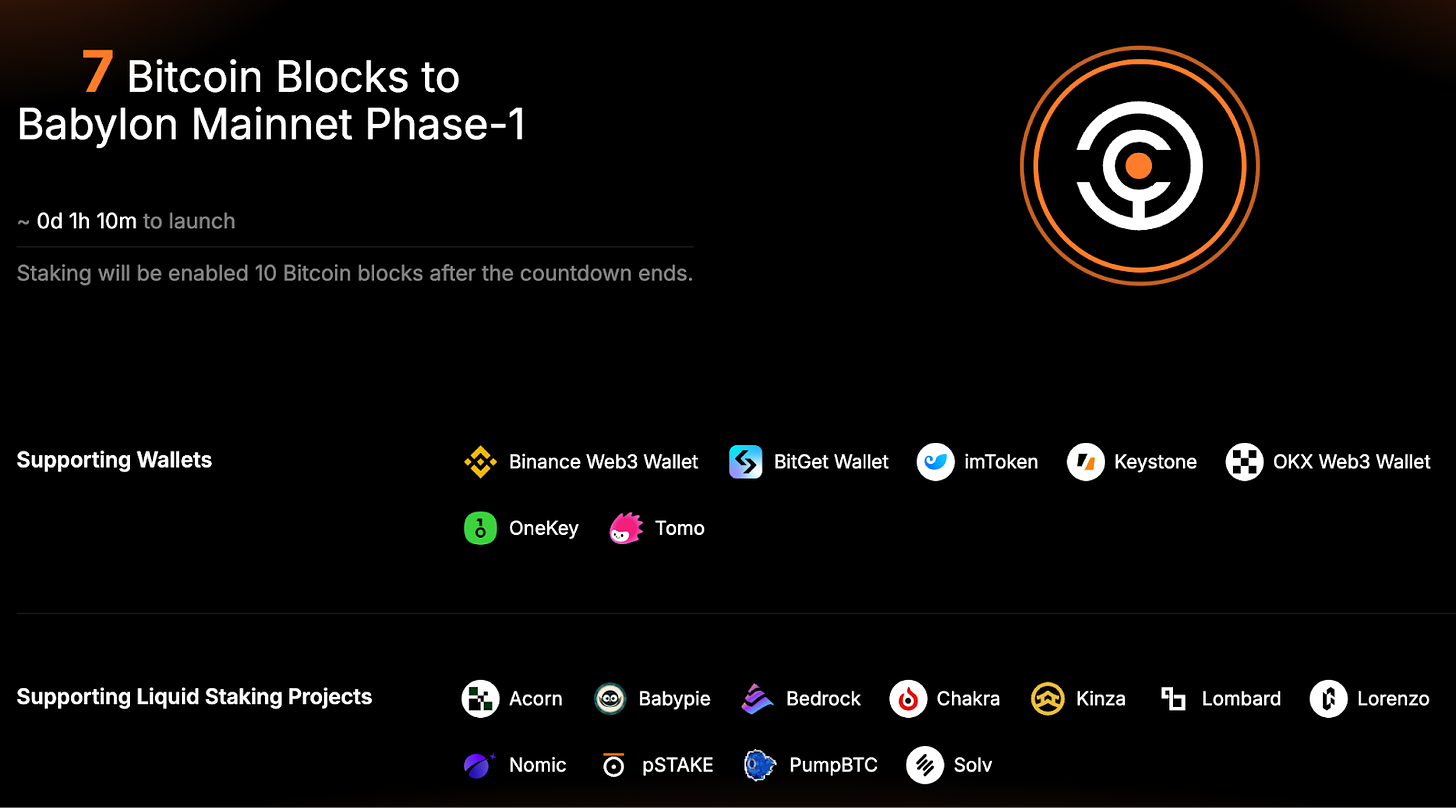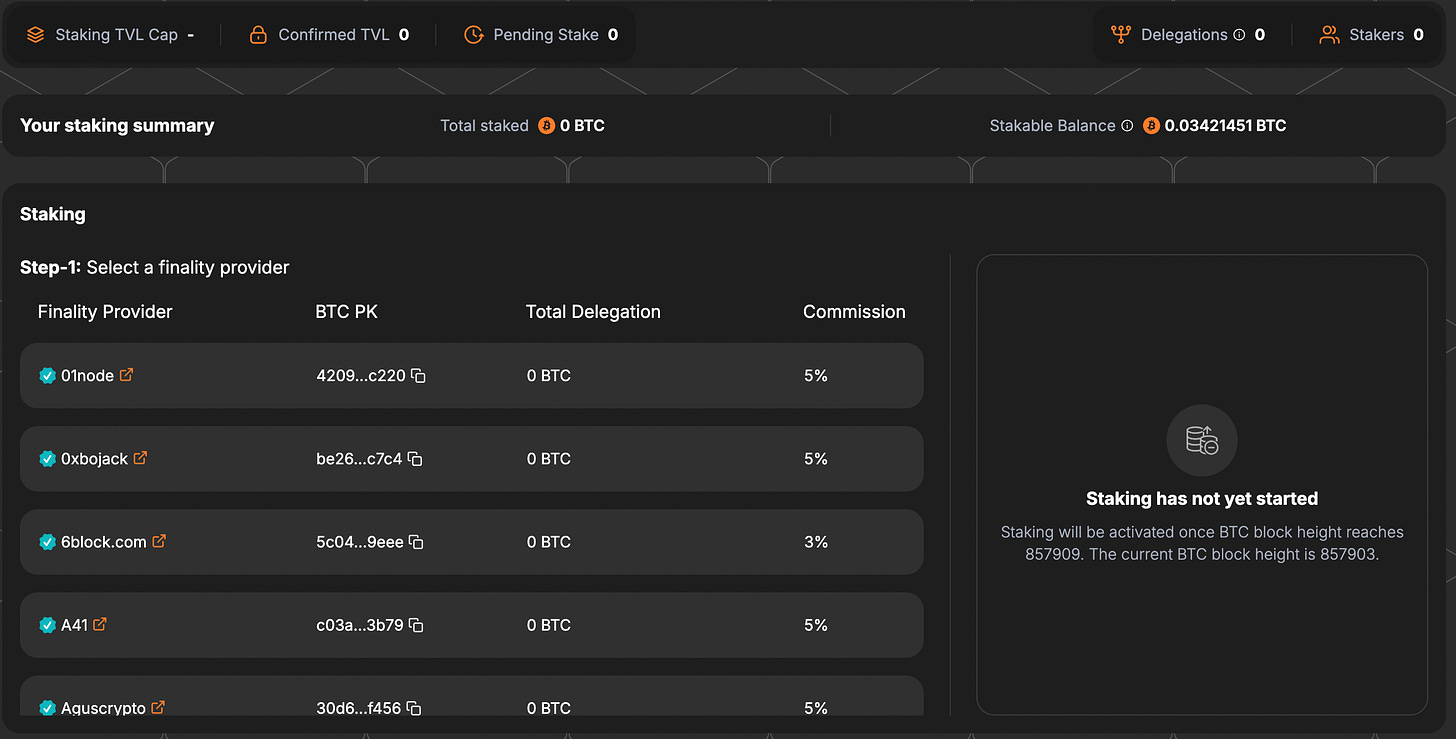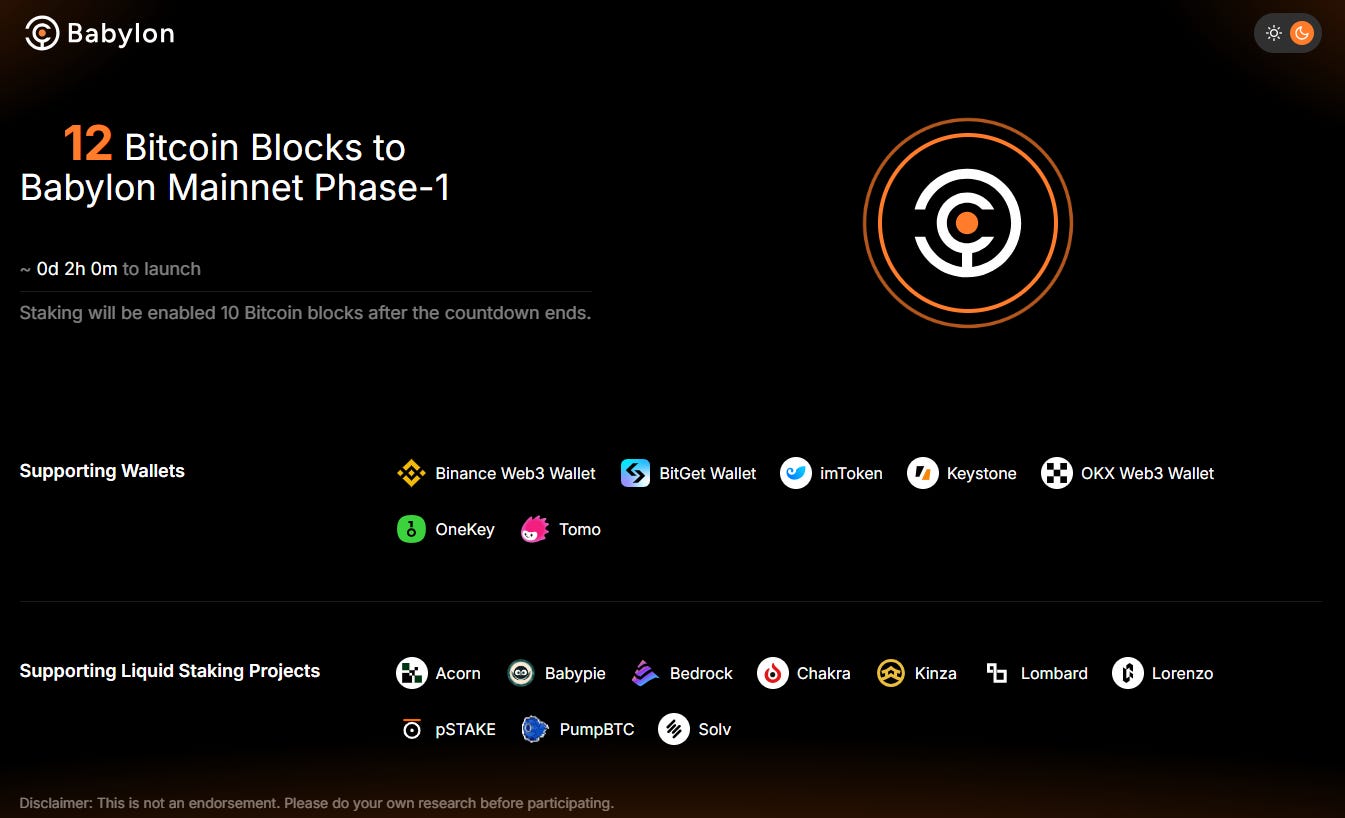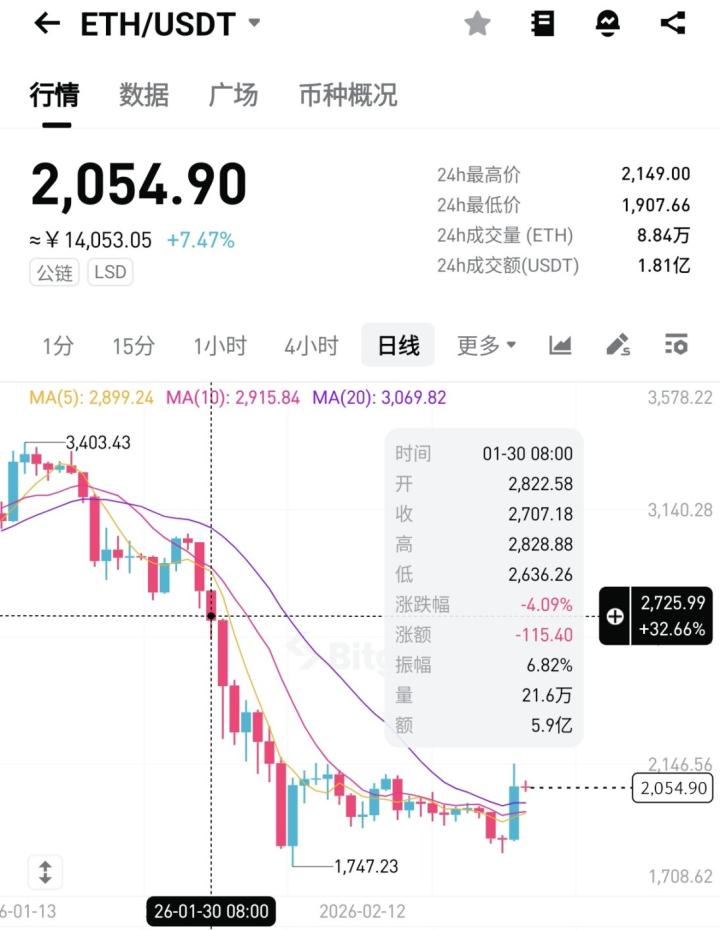Introduction to Babylon Three Stages

When Babylon opened staking in the early days, it cooperated with many mainstream wallets and third-party protocols. The wallet part includes the familiar ones such as Binance wallet, Bitget wallet, OKX Wallet, imToken wallet, etc.
Other protocols that provide liquid staking support include Babypie, Bedrock, Chakra, Kinza, Lombard, Lorenzo, pStake, pumpBTC, Solv Finance, etc.
Phase 1 - Lock $BTC
The first phase is about to be opened. During this phase, all users holding native $BTC can submit Bitcoin pledge transactions for pledge. These pledge transactions will be locked in a secure and automated Bitcoin pledge program and specified by the user. The public key of the finality provider, which will be a preliminary preparation for participating in other POS blockchain verifications.
If the user designates the finality provider to himself (holds the private key of the finality provider), then the pledged BTC will not be transferred to the finality provider. Special attention should be paid to this part.
Phase 2 - BTC staking starts
In the second phase, Babylon will launch and connect to a POS blockchain, providing the security of the BTC pledged in the first phase to the chain, and the finality provider that has obtained sufficient voting rights in the first phase will participate in the consensus of the Babylon PoS chain. process, the main responsibility of these providers is to verify the finality of the blocks on the chain and obtain certain rewards for this.
The Babylon PoS chain will integrate the Bitcoin timestamp protocol ( https://arxiv.org/pdf/2207.08392 ), which is crucial for achieving the cross-chain time synchronization technology required for Bitcoin staking security.
Phase 3 - BTC multi-collateral launch
At this stage, Babylon will create a BTC safe pledge market, allowing multiple POS to enjoy the security of the Bitcoin mainnet, and pledgers participating in the Babylon protocol can obtain corresponding staking rewards. At this time, pledgers can use the same BTC Assets are pledged on multiple POS chains to obtain more pledge income, extending income and security to users and POS blockchains respectively.
Currently open: Phase 1
Overview of the staking mechanism
1.1 Staking time and unstaking
In the first stage, the time of each pledge is automatically set to the maximum pledge time of the Bitcoin mainnet time lock, which is 64,000 blocks, which is about 15 months . After 64,000 blocks are generated, it will automatically expire. The pledged BTC can be withdrawn. If the user does not want to pledge for such a long time, he or she can unstake it in advance, but it will take 1008 blocks (about a week) to withdraw it.
The security of early unstaking will be taken care of by the Babylon Contract Committee. This committee is a multi-signature scheme composed of 9 well-known web3 companies. This scheme requires the approval of at least 6 members to complete the transaction.
Among the committee members, except for Babylon Labs, which holds 3 keys as the core development team of the project, the others are all single key holders:
AltLayer : Well-known Rollup service provider
CoinSummer Labs : Affiliated to top staking service provider StakeFish and well-known mining pool F2Pool
Cubist : Secure Staking Infrastructure Provider
Informal Systems : Cosmos Ecosystem Verifier
RockX : PoS validator and liquid staking provider
Zellic : Blockchain contract security audit company
This contract committee only exists to ensure the safety and correctness of unstaking. Even if these entities are maliciously attacked, they cannot use the BTC assets of the pledgers or prevent the pledgers from withdrawing coins.
1.2 Staking caps and restrictions
Due to security considerations, only 1,000 BTC are initially open for pledge , on a first-come, first-served basis, in accordance with the block transaction order of the Bitcoin mainnet. The portion exceeding 1,000 BTC is overflow, and users can unpledge the overflow and get it back. , if more quotas are opened later, users need to resubmit the pledge transaction, and the overflow part cannot be regarded as future quotas. This part needs to be paid attention to.
Limit rules for each pledge: Babylon does not encourage users to over-split their participation in pledges, but rather hopes that many users will truly participate. The minimum limit already includes the handling fees required for transactions.
Minimum limit for each pledge: 0.005 BTC
Maximum limit for each pledge: 0.05 BTC

Points system - Within the initial staking limit of 1,000 BTC, each Bitcoin block will provide 3,125 points.
Since the POS chain has not been launched in the first phase, staking rewards will be issued in the form of points, and points will be given to each staker by tracking the activities of each staker using the system's public key.
Within the initial 1,000 BTC pledge limit, each Bitcoin block will provide 3,125 points. All points will be distributed to active pledgers in the block. Of course, overflow, early withdrawal, unpledge, and unpledge will not be included in the point range. . To put it simply, the points allocation method is entirely based on the proportion of the user's wallet within the 1,000 BTC limit.
For example, if the user's wallet pledges 0.05 BTC to enter the 1000 limit, each block can obtain 3125 * 0.05 / 1000 points, which is approximately 0.15625 points. If calculated based on 4000 blocks (1 month), 625 points can be obtained If the final provider's commission ratio is 5%, the user will finally get 593.75 points, and the final provider will get 31.25 points.
How to participate

Official website
Go directly to the Babylon official website staking page:
https://btcstaking.babylonlabs.io/
, please pay attention to the wallet type.
Third Party Agreement
Can participate in third-party staking websites, BTC custody solutions and other agreements, such as:
Acorn | Magpie XYZ | Bedrock | Chakra protocol | Kinza Finance | Lombard | Lorenzo | pSTAKE Finance | Pump BTC | Solv | Pell Network
Command line interface tools
Users who are familiar with programming can refer to: https://github.com/babylonlabs-io/btc-staker/blob/v0.5.x/docs/create-phase1-staking.md
Other things to note
security
Babylon Protocol has cooperated with a number of blockchain smart contract auditing companies. The following is the public audit report information.
Coinspect audit report: docs.babylonlabs.io
Zellic Audit Report: docs.babylonlabs.io
Cantina Audit Report: docs.babylonlabs.io
Regional restrictions
Residents, agents or entities registered in the following areas will be prohibited from participating in staking and will not be able to obtain staking rewards and points
The United States, the United Kingdom, the European Union or any member state thereof, the United Nations or any member state thereof (collectively, the "Primary Jurisdiction"), the countries to which such Primary Jurisdictions impose embargoes or sanctions on goods.
Country-Specific Person: A U.S. person (as defined in 17 CFR § 230.902), an individual or corporate entity ordinarily located or resident in the United States, Canada, or Australia.
For more complete information, please refer to:Babylon official information
▌Research and discuss with the Biyan community. Welcome to join the daily Biyan Chinese exchange group !
▌Subscribe to the daily Coin Research e-newsletter (one article per week to quickly understand market conditions, on-chain data and potential project developments)







